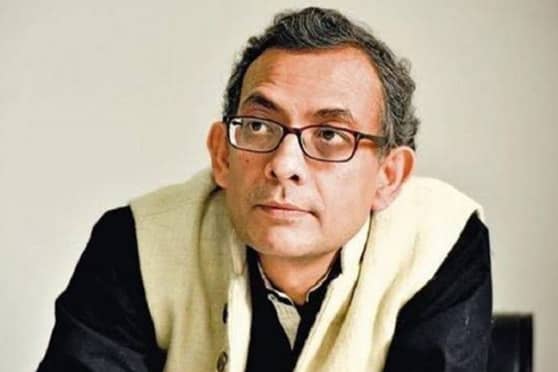Learning loss biggest global threat to pandemic recovery: Nobel laureate Abhijit Banerjee


Learning loss owing to school closures is one of the biggest global threats to long-term recovery from the COVID-19 pandemic, Nobel laureate Abhijit Banerjee has said, claiming that the economic cost of this disruption in education will be severe if corrective action is not taken urgently.
Noting that temporary school closures may cause permanent damage, he said that merely reopening schools will not be enough. Not measuring learning loss and delaying the steps to integrate children back into the system will be a "recipe for disaster", he added.
"The short-and long-term impact of the COVID-19 crisis on children's education, wellbeing, and future productivity is profound. Almost two years after schools began closing in most countries across the world, it is time that governments take urgent steps to limit the damage. Estimates suggest the economic cost of lost learning from the crisis will be in trillions of US dollars if corrective action is not urgently taken," Banerjee told PTI in a telephonic interview from Massachusetts in the US.
Banerjee, a noted economist, is co-chair of the Global Education Evidence Advisory Panel (GEEAP), which is working on recommendations for the education sector in the post-pandemic world. He won the 2019 Nobel prize in Economics.
"While many other sectors have rebounded when lockdowns eased, the damage to children's education is likely to reduce children's wellbeing and productivity for decades, making education disruption and learning loss due to school closures one of the biggest threats to medium-and long-term recovery from COVID-19 unless governments act swiftly," he said.
Banerjee, who is currently a professor at Massachusetts Institute of Technology (MIT), said schools need to reopen at the first opportunity.
"Schools need to reopen and be kept open as far as possible but that is not going to be enough. Addressing the issue of dropouts to ensure children return to school and also having a plan for reintegrating children back into the school system is very important,” he said.
Schools across the globe closed in 2020 following the outbreak of novel coronavirus and have reopened in various countries depending upon the COVID situation. At the peak of the crisis, UNESCO data showed that over 1.6 billion learners in more than 190 countries were out of school. Over 100 million teachers and school personnel were impacted by the sudden closures of learning institutions.
"Not measuring learning loss will be an absolute recipe for disaster. We need to acknowledge that children will definitely fall behind and urgent action needs to be taken to reduce the gap and minimise the learning loss," said Banerjee.
Launched in July 2020, GEEAP is an independent, cross-disciplinary body composed of leading education experts from around the world. Its mandate is to provide succinct, usable, and policy-focused recommendations to support policy makers' decision-making on education investments in low-and middle-income countries.
Banerjee also laid emphasis on the importance of teachers training in the post-COVID era.
"Teachers already had a tough job. And now learning loss, children falling behind and varied learning levels in the classroom makes it more difficult for teachers to help most students catch-up. Providing teachers with simple teaching guides combined with strong monitoring and feedback systems can help them structure their pedagogical approach and ensure that children learn effectively. Additional tutoring can also help children catch-up," Banerjee said.
Banerjee also warned against closing schools again unless there is an aggressive variant of COVID-19 which puts children at an extremely high risk.
"Even in the case of new outbreaks, schools should be the last institution to close and the first to reopen, given the relatively low risk of transmission and the high cost to youth. If there is an aggressive variant of COVID-19 which puts children at an extremely high risk, of course nobody will want the children to be dying. But if that is not the situation, I believe we should avoid closing schools further," he said.